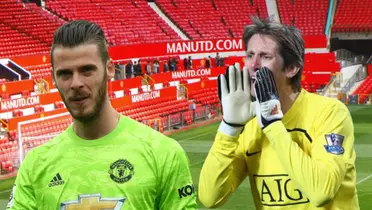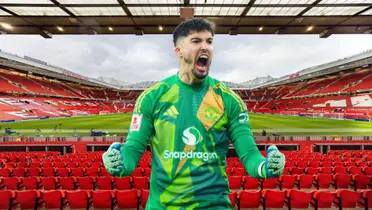How does Manchester United use sports psychology to win matches?
Sports psychology: The secret weapon of modern football and its impact on Manchester United

In elite football, where technique and tactics reach levels of excellence, sports psychology emerges as a determining factor for achieving success. High-performance players, such as those who are part of Manchester United, face unique challenges: constant pressure, high expectations, and the need to maintain optimal performance in every match. Sports psychology has become a fundamental tool to help these athletes manage these demands and unleash their full potential.
In the heart of Old Trafford, Manchester United has long recognized the value of sports psychology in its pursuit of glory. Through cutting-edge mental training programs, players learn to master their emotions, maintain concentration under pressure, and develop the resilience needed to overcome the obstacles that arise on the road to success.

Manchester United and sports psychology: A case study
Manchester United, one of the most emblematic and successful clubs in the world, has adopted sports psychology as a fundamental pillar of its game philosophy. The club has implemented personalized mental training programs for its players, designed to address the specific needs of each one and enhance their performance on the field.
These programs focus on the development of key mental skills, such as pressure management, concentration, resilience, and confidence. Players learn to control their nerves before important matches, to maintain calm and mental clarity during critical moments of the game, and to recover quickly from mistakes and defeats.

Benefits of sports psychology in professional football
Sports psychology not only benefits players individually but also has a significant impact on the team's overall performance. By improving the mental and emotional health of players, a more positive work environment is created, and cohesion and team spirit are fostered.
- Improved individual performance: Players who receive mental training are able to better manage their emotions, maintain concentration, and make more accurate decisions under pressure.
- Strengthening team spirit: Sports psychology promotes communication, trust, and mutual support among players, which translates into a better work environment and greater collective performance.
- Reduction of stress and anxiety: Players learn relaxation and stress management techniques that allow them to face matches with greater tranquility and confidence.
- Injury prevention: Sports psychology helps players maintain motivation and commitment to training, which reduces the risk of injuries due to overload or lack of concentration.
- Resilience development: Players learn to overcome mistakes and defeats, which allows them to recover quickly and move forward with a positive attitude.

The future of sports psychology in football
Sports psychology is experiencing a boom in the world of football, and more and more clubs and players recognize its importance for achieving success. It is expected that in the future, sports psychology will become an integral part of the preparation of elite footballers, both individually and collectively.
Advances in research and technology are allowing sports psychologists to develop increasingly effective and personalized mental training programs. Techniques such as virtual reality and biofeedback are being used to help players simulate high-pressure situations and control their physiological and emotional responses.
In high-competition football, where the difference between victory and defeat can be minimal, sports psychology has become a crucial differentiating factor. Players who are able to master their emotions, maintain concentration under pressure, and recover quickly from mistakes have a significant competitive advantage.
Manchester United, as one of the most important clubs in the world, has recognized the importance of sports psychology and has integrated it into its training program. The results speak for themselves: the club has achieved numerous successes in recent years, and sports psychology has played a fundamental role in these achievements.
In the future, sports psychology will continue to evolve and adapt to the needs of modern football. Clubs that invest in this area and that are capable of developing effective mental training programs will be better positioned to achieve success on the field.
What you should know about sports psychology in football:
- Sports psychology is a key factor for success in modern football.
- Manchester United is an example of a club that has implemented mental training programs for its players.
- Sports psychology improves the individual and collective performance of players.
- Sports psychology helps players manage pressure, stress, and anxiety.
- Sports psychology is a constantly evolving discipline that is gaining increasing recognition in the world of football.
More news

The Numbers Don't Lie: Casemiro's Dominance Returns
31/03/2025

United's Dream Pairing: The Duo Fans Are Eager to See
31/03/2025

Hojlund's Fate: Will He Stay or Leave Man United?
31/03/2025

Højlund's Plummeting Value: A Cause for Concern at Man United
31/03/2025

Giggs' Misjudgement: Depay's Free-Kick Hopes Fall Flat
31/03/2025

Man United's Summer Clearout: Players on the Chopping Block
31/03/2025

Financial Divide: Man United's Value Dwarfs Olympique Lyon's Squad Cost
30/03/2025

Onana Exit Rumors Swirl: How the Goalkeeper Is Responding
30/03/2025

Eriksen breaks the silence about the rumors of not renewing
30/03/2025

World-Class Player Available: Romano Reveals Transfer Bombshell
30/03/2025

Ugarte's Premier League Insight: Key Differences From Ligue 1 Revealed
30/03/2025

Garnacho Outshines Salah and Haaland: A Stunning Statistical Triumph
29/03/2025

Ekitike's Staggering Stats: Why Man United Are Keen
29/03/2025

Beyond Legends: The United Player Who Rewrote Investment History
29/03/2025

Manchester's Goalkeeping Giants: Who Reigns Supreme?
29/03/2025

Fernandes' Fortune: Unveiling the Price Tag of United's Captain
29/03/2025

The Manchester United jewel that was rumoured for Barcelona ended up in an exotic league
29/03/2025

Father's Faith Pays Off: 100 Pound Bet on Son's United Debut
29/03/2025



